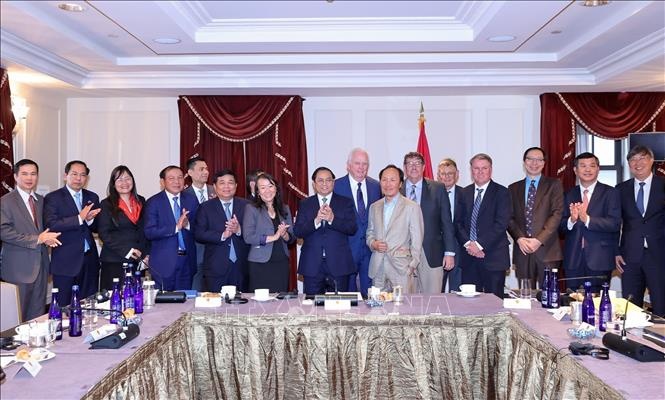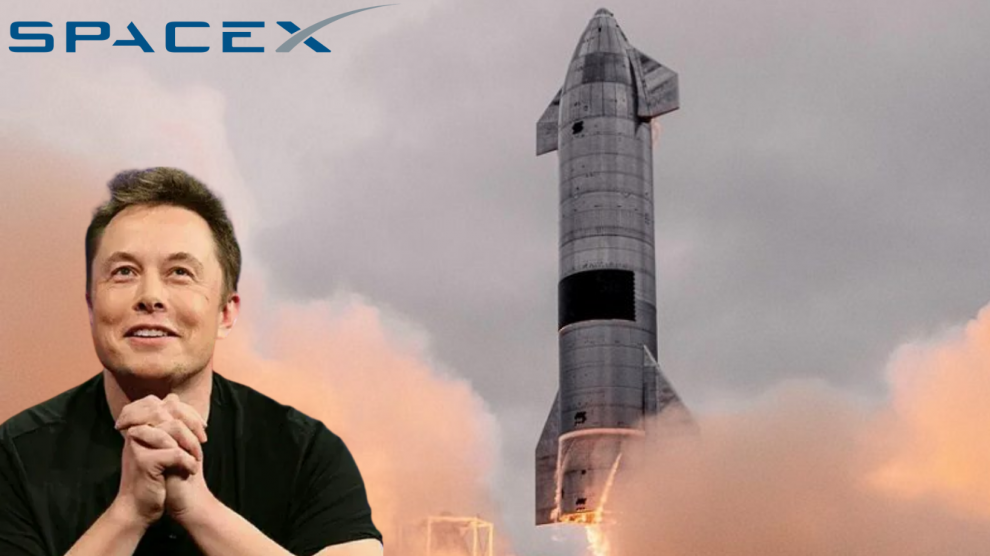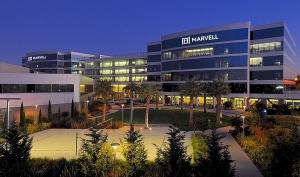Harvard, Yale, and Columbia luminaries weigh in on Vietnam's ambitious blueprint
 |
The landmark state visit of US President Joe Biden to Vietnam on September 10-11 has been a historic pivot, elevating Vietnam-US ties to a Comprehensive Strategic Partnership. The essence of this partnership, PM Chinh said, lies in deepening economic, trade, and investment collaborations.
He emphasised the gravity of scientific, technological cooperation, and innovation as game-changers.
"The Biden visit signals an enhanced strategic alignment, centred on economic partnerships and technological collaboration," he said.
As reported by Tuoitre, Prof. Thomas Vallely, director of the Vietnam programme at Harvard Kennedy School, praised Vietnam's deft management. "Vietnam's response to major crises, especially its handling of the COVID-19 pandemic, is commendable," Vallely said. "Despite its nascent experience in some sectors, Vietnam has proactively sought knowledge, established global ties, and opened doors for partnerships, with the US being a case in point."
Prof. Anthony Saich, who helms the Rajawali Research Institute for Asia at Harvard Kennedy School, spotlighted Vietnam's influential role in the shifting sands of global commerce.
"Vietnam stands out as a beacon of trade liberalisation," asserted Saich, acknowledging the country's latent economic dynamism.
"In the present global backdrop, Vietnam faces myriad questions on safeguarding its economic interests and balancing multifaceted relationships. The immediate challenge, he pointed out, is the lingering sluggishness in the global economic environment," he said, cited Tuoitre.
He advised Vietnam to consider enhancing its investment climate and mobilise finance to further stimulate innovation, especially in the semiconductor sector, and foster an environment conducive to the application of AI.
As reported by VNExpress, David Dapice, senior economist at Harvard Kennedy School, posited that the country's extensively open economy would remain susceptible to international economic adversities.
He underlined the importance of self-reliance, saying, "Vietnam's economy reveals several bright spots, but the road ahead also presents challenges."
Prof. Shang Jin-Wei of Columbia University underscored the need for Vietnam to continue investing in high-quality human resources equipped with superior skills.
He recommended refining institutional structures, prioritising investments in high-tech sectors, ensuring energy supply stability, diversifying export commodities, and enhancing the nation's social security framework.
Vietnamese-origin billionaire Chinh Chu heralded Vietnam's prosperous future and strategic position. Advocating accelerated development trajectories, Chu endorsed enhanced US collaboration in high-value sectors like technology and semiconductors, according to VNExpress.
"Vietnam should consider instituting investment funds akin to Singapore's Temasek model," he said.
Prof. Erik Harms, head of Southeast Asian Studies at Yale University, illuminated the urban planning narrative within Vietnam.
"I often hear more about planning mishaps than success stories," Harms said. He urged Vietnamese authorities to put the public's voice front and centre in their development blueprints.
Drawing a parallel with Singapore's commendable urban strategy, Harms said, "Vietnam has the potential to become a global frontrunner in urban planning, provided it deftly amalgamates international insights, local perspectives, and cutting-edge technology."
Prof. Nguyen Thi Lien Hang from Columbia University saw Vietnam poised to emerge as a regional and global powerhouse.
"A revamp in curricula and pedagogical techniques is essential for fostering world-class human capital," she said. "I eagerly anticipate an influx of Vietnamese students joining Columbia's acclaimed programmes."
Addressing the scholars' inputs, Chinh said all the suggestions aligned with Vietnam's national prerogatives.
"These insights resonate with Vietnam's ongoing economic transitions and are synchronous with contemporary trends and supply chain shifts," said
Concluding the discussions, the Vietnam’s PM acknowledged the pivotal role of human capital in determining the nation's fate.
"Our government will concentrate on refining the calibre of our workforce, aligning educational methodologies with evolving realities, and meeting the developmental demands across priority sectors and phases," he said.
Chinh also articulated his belief in the country’s prodigious potential, primarily rooted in its human resources.
"Our youthful population, characterised by diligence, an insatiable quest for knowledge, and a penchant for mathematics and IT, represents an unparalleled advantage,” he said. "Vietnam remains committed to harmonising its intrinsic national strengths with global trends, synergising internal and external prowess."
He assigned government agencies to assimilate and apply the exchanged viewpoints, to aid the government and himself in strategic governance across sectors.
"I eagerly anticipate more profound policy dialogues and thematic research discussions with experts, furthering Vietnam’s developmental journey,” PM Chinh said.
Emphasising the continued collaboration, the PM conveyed his hope for ongoing support from Harvard University, Columbia University, and other US educational institutions, especially in education, training, and policy advice.
 | SpaceX targets $500 million investment in Vietnam SpaceX is gearing up for a significant foray into Vietnam, announcing a proposed $500 million investment with aspirations to roll out its Starlink services in the country. |
 | Marvell to set up new facility in Vietnam Marvell Technology, Inc., a leader in data infrastructure semiconductor solutions, will open a new facility in Vietnam by the end of 2024. |
What the stars mean:
★ Poor ★ ★ Promising ★★★ Good ★★★★ Very good ★★★★★ Exceptional
Related Contents
Latest News
More News
- NAB Innovation Centre underscores Vietnam’s appeal for tech investment (January 30, 2026 | 11:16)
- Vietnam moves towards market-based fuel management with E10 rollout (January 30, 2026 | 11:10)
- Vietnam startup funding enters a period of capital reset (January 30, 2026 | 11:06)
- Vietnam strengthens public debt management with World Bank and IMF (January 30, 2026 | 11:00)
- PM inspects APEC 2027 project progress in An Giang province (January 29, 2026 | 09:00)
- Vietnam among the world’s top 15 trading nations (January 28, 2026 | 17:12)
- Vietnam accelerates preparations for arbitration centre linked to new financial hub (January 28, 2026 | 17:09)
- Vietnam's IPO market on recovery trajectory (January 28, 2026 | 17:04)
- Digital economy takes centre stage in Vietnam’s new growth model (January 28, 2026 | 11:43)
- EU Council president to visit Vietnam amid partnership upgrade (January 28, 2026 | 11:00)

 Tag:
Tag:
















 Mobile Version
Mobile Version